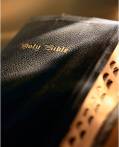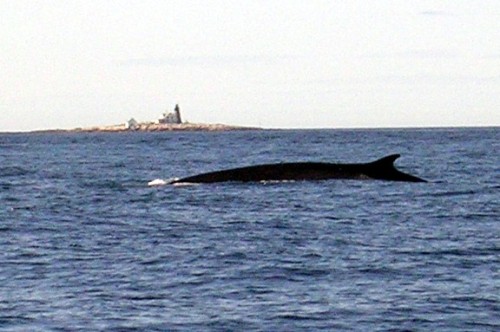The Declaration of Independence may be the most successful essay ever written. And had it failed, it would still be gorgeous literature. It would have looked great chiseled on Jefferson’s tombstone after the British had hung him.
There is another matter that the Founding Fathers must have felt the need to contend with too, an authority higher than the British Crown:
Let every person be subject to the governing authorities. For there is no authority except from God, and those that exist have been instituted  by God. Therefore whoever resists the authorities resists what God has appointed, and those who resist will incur judgment. For rulers are not a terror to good conduct, but to bad. Would you have no fear of the one who is in authority? Then do what is good, and you will receive his approval, for he is God’s servant for your good. But if you do wrong, be afraid, for he does not bear the sword in vain. For he is the servant of God, an avenger who carries out God’s wrath on the wrongdoer.” (Romans 13: 1-4)
by God. Therefore whoever resists the authorities resists what God has appointed, and those who resist will incur judgment. For rulers are not a terror to good conduct, but to bad. Would you have no fear of the one who is in authority? Then do what is good, and you will receive his approval, for he is God’s servant for your good. But if you do wrong, be afraid, for he does not bear the sword in vain. For he is the servant of God, an avenger who carries out God’s wrath on the wrongdoer.” (Romans 13: 1-4)
 How might the Founding Fathers have handled Romans 13? This chapter in the Bible has been used and abused by ruling powers for centuries, including an officially atheist Soviet Union to bully its Orthodox believers into submission.
How might the Founding Fathers have handled Romans 13? This chapter in the Bible has been used and abused by ruling powers for centuries, including an officially atheist Soviet Union to bully its Orthodox believers into submission.
- “For there is no authority except from God…”
- “… [Rulers] have been instituted by God.”
- “…what God has appointed…”
- “…rulers are not a terror to good conduct, but to bad.”
- “…he [the ruler] is God’s servant…”
- “…he is the servant of God…”
But what happens when they ain’t?
The Apostle Paul makes a very large point that all rulers are appointed by God, servants to do God’s will, that whoever resists the authorities–British or otherwise–resists what God has appointed. They “are not a terror to good conduct, but to bad.” Except when they ain’t… So what then?
Paul lived in the time of the Roman Emperor Nero, who terrorized innocent people. Paul was born around the time of Herod the Great, who terrorized innocent people, even slaughtering all male babies born at the time of the birth of Jesus, to prevent a rival to the throne. Paul also had—fresh in his cultural memory—the atrocities of Antiochus Epiphanes, who massacred tens of thousands of innocent people, outlawed the Jewish religion, and desecrated the Temple in Jerusalem by slaughtering a pig on the altar—which led to a popular revolt and the institution of Hanukkah. How could Paul say that rulers are not a terror?
When Paul said that, did he mean it ironically, as Shakespeare did with Antony’s speech (“Brutus is an honourable man.”)? Was he reminding rulers that they have been put on the throne by God and can as easily be removed by God—or by others doing God’s will? Too often, I think, we take Romans 13 merely as a directive to obey the governing authorities blindly, though this may run counter to other parts of the Bible: “But Peter and John answered them, ‘Whether it is right in the sight of God to listen to you rather than to God, you must judge, for we cannot but speak of what we have seen and heard.’” (Acts 4:19-20)
In other words, is there a built-in loophole to Romans 13?
We hold these truths to be self-evident, that all men are created equal, that they are endowed by their Creator with certain unalienable Rights, that among these are Life, Liberty and the pursuit of Happiness. — That to secure these rights, Governments are instituted among Men, deriving their just powers from the consent of the governed, — That whenever any Form of Government becomes destructive of these ends, it is the Right of the People to alter or to abolish it, and to institute new Government, laying its foundation on such principles and organizing its powers in such form, as to them shall seem most likely to effect their Safety and Happiness. Prudence, indeed, will dictate that Governments long established should not be changed for light and transient causes; and accordingly all experience hath shewn that mankind are more disposed to suffer, while evils are sufferable than to right themselves by abolishing the forms to which they are accustomed. But when a long train of abuses and usurpations, pursuing invariably the same Object evinces a design to reduce them under absolute Despotism, it is their right, it is their duty, to throw off such Government, and to provide new Guards for their future security.”
“…it is their right, it is their duty, to throw off such Government, and to provide new Guards for their future security.”
Thomas Jefferson, Benjamin Franklin, John Adams and others who drafted and signed the Declaration of Independence were all well-acquainted with Romans 13. A man couldn’t be educated in that period without thorough knowledge of the Bible and the classics. They needed to consider not only the political and fiscal conservatives who would balk at a rebellion that could jeopardize their wealth, but also the religious conservatives who might point to this chapter of the Bible in defense of the British Crown. But I think it was an easier sell to make on biblical grounds than on political and fiscal ones. If the rebellion failed, God could forgive. The King’s army, and the banks, would not.
And so here we are, 234 years later. Jefferson and friends may have been right.
Read the Declaration of Independence again, and the First Amendment. Read Romans 13, have a slice of watermelon and a great Fourth of July.
Read Full Post »














 How might the Founding Fathers have handled Romans 13? This chapter in the Bible has been used and abused by ruling powers for centuries, including an officially atheist Soviet Union to bully its Orthodox believers into submission.
How might the Founding Fathers have handled Romans 13? This chapter in the Bible has been used and abused by ruling powers for centuries, including an officially atheist Soviet Union to bully its Orthodox believers into submission.



